-
Tips for Getting Your Staff on Board with a New Recycling Program
Recycling in the workplace can promote a greener image for your company, support employee satisfaction, and reduce waste management costs. If you’re in the process of organizing an office program for recycling in Atlanta , then read on for tips on getting your staff on board.
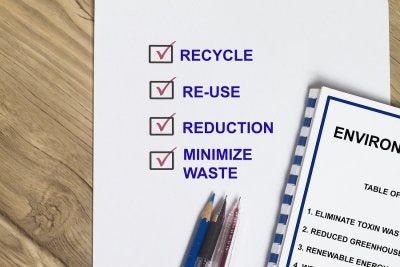
Dedicate Time to Training
If your team members don’t fully understand your new office recycling program, then you may have trouble getting them to use it. Also, without the proper training and instruction, your staff may throw trash into the recycling bins or mix up materials, for example, by putting food waste or aluminum cans into a plastics recycling bin. For these reasons, setting aside time for training that is dedicated to how to use the recycling system can be an excellent way to get your team on board with the program. If you’re concerned that starting a multi-stream recycling system for your office will be too great of a leap, then learn if single-stream recycling, in which all recyclable materials are collected together instead of in separate bins, is an option for your office.
Focus on Employee Education
In addition to teaching your staff how to use your office’s recycling system, you can help encourage them to make the most of it by educating them on the benefits of recycling. By informing employees why recycling is important for reducing waste and greenhouse gas emissions, as well as how it can save the company money, you can provide your team with greater motivation to embrace the new recycling system.
Post Some Helpful Signage
Finally, while training and education are essential for starting a recycling program the right way, you may help encourage long-term adherence among your staff by posting informational signage in your office. For example, you can add posters on or near each recycling bin that describe what materials should be placed in each and what items belong in the waste or compost. Finally, to help encourage employee compliance, consider posting informative signage about how recycling benefits everything from the environment to the company.
-
How Your Leftovers Can Be Converted into Fuel
Are you interested in taking advantage of the benefits of organic food recycling near Atlanta , but you wonder what happens when your leftovers go into a food recycling bin instead of the dumpster? If so, then watch this video to discover how food can be converted into fuel.
When food waste is placed in an anaerobic digestion waste management system, it can be converted into a gas called methane, which can be harnessed and then used for fuel by power plants. To make the food recycling process more efficient and versatile, companies are researching ways of converting food waste into ethanol, which is a more useful form of energy than methane, and scientists are working on new methods using food waste and other resources to create energy.
-
A Look at the Impressive Life Cycle of Aluminum
Smelting aluminum from virgin materials demands a lot of energy, making aluminum recycling a conservative and energy-efficient option. Watch this video to get a glimpse of what happens to the aluminum cans that you toss into your recycling bins in Atlanta .
Americans generate more than one million pounds of aluminum waste every day but, for most of it, this won’t be its first time around. Because metallic aluminum is a very stable material, it’s incredibly recyclable and can be melted down and reused indefinitely. In fact, about 2/3 of all aluminum that has been made is still around, and an aluminum can that you toss in the recycling bin can be back in your fridge containing a new beverage in just 2 to 3 months.
-
Exploring the Advantages of Food Recycling
While many people are familiar with the benefits of recycling materials like metal, glass, and plastic, fewer realize that unwanted food can be repurposed, as well. If you’re searching for ways to reduce your establishment’s waste in Atlanta, then read on to learn about the advantages of recycling food instead of throwing it in the trash.

Save on Operating Costs
When you implement a food recycling program for your business, it makes sense to conduct a waste audit, as well. Waste audits allow you to identify areas for improvement and which foods are being wasted most. For example, a waste audit may let you know that one of the items on your restaurant’s menu should go, as you frequently toss out the ingredients that you buy for it. Or, you may learn that your employees could be using ingredients more efficiently, allowing you to implement a new training program that may cut down on your business’ food waste.
Save on Waste Management Costs
By conducting a waste audit and learning where food is being wasted unnecessarily, you may be able to reduce what you spend on dumpster services.
Be More Environmentally Responsible
Any business that uses food on a regular basis, such as restaurants, grocery stores, schools, and food distributors, can make a beneficial impact on the environment by adopting a food recycling program. Food recycling serves a number of valuable purposes, allowing the waste to be repurposed in a variety of ways such as for feeding livestock or creating compost. Also, the anaerobic digestion process that is used to recycle food can be used to generate energy and reduce the need for electricity production.
Improve Your Business’ Image
Adopting a food recycling plan is an excellent way to boost your establishment’s reputation. By demonstrating that less of your food waste ends up in the dumpster and that more of it is being put to good use, you can generate good press and an environmentally friendly image for your company.
-
Advice for Restaurants Who Want to Cut Waste
When it comes to maximizing the profits for your business, efficient waste management is critical. If you are a restaurant owner who wants to cut down on waste in Atlanta, then keep reading for some advice on getting started.
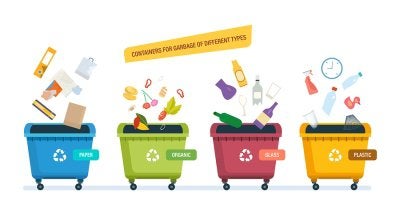
Get an Audit
Waste analytics, or data regarding waste, can be invaluable when it comes to cutting down on the amount of trash that ends up in your restaurant’s dumpsters. For this reason, one of the first steps you should take to reduce waste is to schedule an audit. You can go through the auditing process yourself or hire a company to come in and evaluate your establishment for you. The results of the audit will give you a better idea of how much waste your restaurant is creating, what types of waste it’s generating, and what your greatest areas for improvement are.
Start Recycling Programs
Following the waste audit, you may find that more recyclable materials end up in your garbage than you would have guessed. To help reduce your establishment’s overall waste, consider starting some recycling programs. For example, you can begin food recycling so that your food scraps can be transformed into compost and animal feed, and you can place recycling bins in a few areas of your restaurant so that materials like paper, plastic, and aluminum can make their way to a recycling plant instead of a landfill.
Examine Purchasing Habits
While it’s important to address what you do with the waste that’s produced, don’t forget to consider if too much product is being brought into your restaurant, as well as how your employees are using ingredients and materials. Take a close look at your purchasing habits to learn if there are areas where you can cut back or convert to recyclable materials. Finally, investigate how products are being used in your restaurant. You may find that materials are being utilized inefficiently or that you can cut back on waste by using 1 ingredient where you currently use 3 similar ones.
-
FAQs About Food Recycling
For many companies, a significant amount of the food they purchase ends up in dumpsters. If you’re looking for a better alternative to throwing away your business’ food waste near Atlanta , then you may benefit from learning about a process called food recycling. Read on to learn the answers to frequently asked questions about this waste management option.
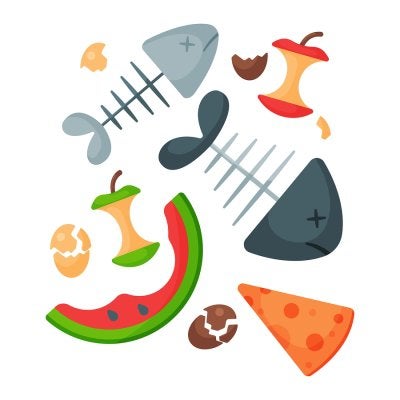
What is food recycling?
Tons of food that can be recycled are sent to landfills every year, and this is a trend that is both wasteful and expensive. Food recycling is much like it sounds and involves the recycling of food waste. If your business produces a lot of food waste, then you, your consumers, and the environment may all benefit if you were to adopt a food recycling system.
What are the benefits of food recycling?
There are many good reasons to get on board with food recycling. First, this process can reduce waste management costs and support zero waste initiatives. Also, food recycling benefits both consumers and companies by improving purchasing discipline and inventory control, because less product wasted means less spending for businesses and lower prices for customers. Additionally, cutting down on food waste benefits the environment by keeping more methane-producing garbage out of landfills and reducing the amount of food that needs to be produced.
Who should use food recycling?
While there is a lot of potential for food recycling, the food service industry is most impacted. Companies that produce or purchase food can direct food waste into the recycling stream instead of the dumpster. From there, the waste can be used to produce animal feed and compost. Also, industrial facilities can use food waste to generate electricity, using the natural gas produced by a process called anaerobic digestion.
What happens after food is recycled?
Companies in the food industry can later benefit from sending their food waste into the recycling stream. For example, the resulting animal feed and compost can be used to produce animal products and crops, and the electrical power generated from anaerobic digestion can provide electrical power for food processing facilities.
-
The Benefits of Lifecycle Thinking
Lifecycle thinking is a term that is used to describe waste management practices that are designed to encourage individuals and businesses to set up sustainable recycling program. In this video from waste management, you will learn about how lifecycle thinking can benefit your recycling serving Atlanta . By taking a look at the larger picture, you will have a better idea of the impact of your recycling program.
From metal recycling to plastic recycling and more, there are many materials that can now be easily recycled and transformed into new goods. If you have been interested in learning more about how to recycle effectively, you may want to educate yourself on lifecycle thinking and how this philosophy can impact your recycling goals.
-
Reducing Paper Use in the Office
Instituting a recycling program for your office is an excellent way to make your business more environmentally friendly. However, taking steps to reduce your need for waste management and recycling in Atlanta is another approach to promoting a greener office. Watch this video for tips on reducing the amount of paper that your office uses.
The average office worker goes through about 1.5 pounds of paper each day, which is an amount that can add up quickly. In addition to using recycled paper and recycling bins in your office, you can make your business greener by reducing your paper use and going digital as much as possible. Also, instead of printing off articles, read them on your computer or mobile device. When you do need to print something, print only the pages that you absolutely need to reduce your paper use.
-
Steps for Recycling Industrial Hazardous Waste
Recycling hazardous waste is an important part of industrial waste management that helps conserve resources and save on manufacturing costs. If you are interested in recycling industrial hazardous waste near Atlanta, then you can benefit from becoming familiar with the following steps:
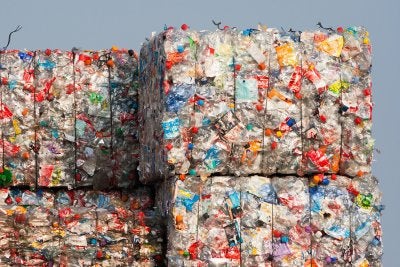
Determine Waste Regulations
The first step in properly recycling hazardous waste is to learn about the EPA waste disposal regulations for the material that you are working with. Refer to the EPA’s regulatory definitions to determine what category your waste material falls under.
Consider Cost-Accounting
You will find that there are many cost-accounting tools available to companies. These tools can help you track your company’s resource use and improve its resource efficiency. Cost-accounting tools usually consider factors like recycling activities, pollution prevention measures, energy savings, and the reduction of greenhouse gas emissions.
Choose a Facility
Once you are ready to begin the industrial waste recycling process, the next step is to locate a responsible recycler. The recycling facility should have a history of permit and environmental compliance, be financially sound, and employ responsible waste management practices. Also, learn if the facility has adequate pollution liability insurance, provisions for any potential closure and cleanup costs, and an effective drop-off and tracking protocol.
Confirm Recycling Legitimacy
Ensuring that your industrial hazardous waste will be properly handled is an important part of the recycling process. You should confirm that the recycling company is legitimate and has well-maintained records of recycling transactions. Also, determine if the secondary material can be effectively used as claimed and if it is being used in amounts more than necessary.
Track Recycling Progress
You have 2 good reasons to measure your success when it comes to recycling industrial hazardous waste. First, monitoring and reporting your company’s recycling progress can have a beneficial impact on its public image. Second, keeping track of your recycling performance provides you with information to share with stakeholders and investors to demonstrate your company’s adherence to environmental regulations.
-
What Is Single Stream Recycling?
As you are planning a waste management strategy for your business, you may want to inquire about the benefits of single stream recycling . Unlike conventional recycling methods, which require the user to sort various materials, single stream recycling allows various types of materials to be recycled in a single bin. Single stream recycling offers the same advantages of paper, plastic, and metal recycling, but with none of the hassle. When you recycle near Atlanta, a single stream approach may be suited for your needs.
After you have set up single stream recycling for your business, you will be able to eliminate any confusing or bulky recycling materials that require you to sort and separate materials. Single stream recycling is particularly effective for office environments, where it can be difficult to ensure that every employee is practicing proper waste management strategies. Your waste management company can answer any additional questions that you may have about the single stream method.
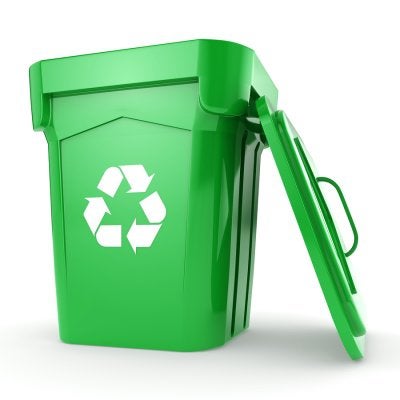
RECENT POSTS
categories
- Uncategorized
- Waste Management Atlanta
- Waste Disposal and Recycling
- Hazardous Waste Disposal
- Chemical waste removal
- solid waste removal
- R3 Program
- Sustainable Organizations
- Sustainable Waste Removal
- Commercial Waste Removal
- Materials Management Program
- Dumpster Rental
- Roll Off Dumpsters
- Construction Site Waste Removal
- Sustainability
- Recycling in Atlanta
- Industrial Recycling
- Industrial Waste Removal Services
- Southern Waste & Recycling
- Waste Removal Atlanta
- Waste Specialists
- Atlanta
- Infographic
- Front Load Dumpsters
- Rear Load Dumpsters
- Reusable Electronics
- Dump Truck Atlanta
- Recyclable Electronics
- Trash Compactors
- Recycling
- Recycling Program
- Office Recycling
- Metal Recycle
- Electronic Waste
